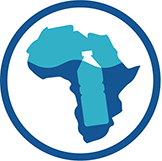
The results are in!

Tackling marine plastics in Sub-Saharan Africa
Over 17 million tonnes of waste are generated by Sub-Saharan Africa annually, and only 12% of plastic waste is recycled. The Challenge aims to reduce marine plastics in Sub-Saharan African countries by developing and scaling innovative solutions to plastic mismanagement in a way that promotes gender equality and empowerment of women and girls.
The Challenge will help communities throughout Sub-Saharan Africa to prevent plastic waste from entering the marine environment by finding ways to minimize reliance on plastic and new ways of managing plastic waste.

The Problem
Over the past years, demand for plastic has substantially increased in Sub-Saharan Africa and it is projected to follow the same trajectory over the next decades…
375% Growth
in Sub-Saharan Africa and Middle East and North Africa Together
210% Increase
in Global Average by 2060
The Afri-Plastics Challenge is divided into three strands:
-
Strand 1: Accelerating Growth
Seeking small and medium-sized enterprises that have a proof of concept and the ability to scale nationally or regionally to reach a high target number of people, particularly engaging women and girls.
-
Strand 2: Creating Solutions
A call for new ideas particularly those that respond to a particular gap in the innovation landscape in specific Sub-Saharan African countries or with specific population groups.
-
Strand 3: Promoting Change (Launching December 2021)
A call for large scale campaigns that raise awareness and engage women and girls in the plastics value chain.
Strand 1: Accelerating Growth
Challenge Statement
Scale existing solutions that improve plastic waste management in a socially and environmentally responsible way, to reduce the presence of marine plastic litter across Sub-Saharan Africa.
By the end of the Challenge successful solutions will have demonstrated an effective, sustainable and replicable model for significantly increasing their collection and processing of plastic waste, as well as the empowerment of women and girls.
Prizes
In November 2021, 30 Semi-Finalists will be selected by the Judging Panel to each receive a £10,000 grant.
In January 2022, of those 30, 15 will be selected to move forward to the finalist stage and will receive a grant of £100,000 to implement their scaling plans.
At the end of this finalist stage (January 2023), the 15 finalists will be required to submit a detailed scaling report outlining progress against their scaling plans, together with a pitch video for evaluation by the judges against the criteria.
Three winners will be selecte to receive the follow prizes:
- First Place: £1,000,000
- Second Place: £750,000
- Third Place: £500,000
Eligibility Criteria
- Applicants must be delivering an existing solution that tackles the reduction of plastic pollution.
- As a processor or a waste collector, you must deal with at least 10 tonnes of plastic waste per month and no more than a maximum threshold of 200 tonnes of plastic waste per month at the time of application.
- Delivery of solutions must be in Sub-Saharan Africa.
- Applicants must be formally constituted and operating in Sub-Saharan Africa as either a registered business, non-governmental organization (NGO), or government agency.
- Applicants can be a single entity, an African partnership or an international partnership. For partnership applications, the nominated lead applicant must be operating in Sub-Saharan Africa.
- Applicants must own or have permission to use relevant intellectual property.
Partners

Funding
This Project is an element of the $100-million Marine Litter Mitigation Fund announced by Prime Minister Trudeau at the G7 Leaders’ Summit in Charlevoix in June 2018. Funding for the initiative comes from the International Assistance Priorities Fund.

Delivery
Nesta Challenges designs and run challenge prizes that help solve pressing problems that lack solutions. We shine a spotlight where it matters and incentivise people to solve these issues.